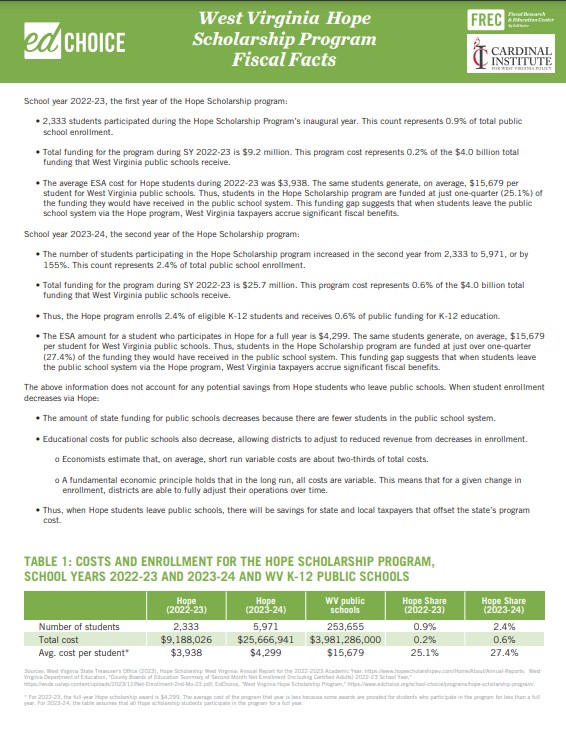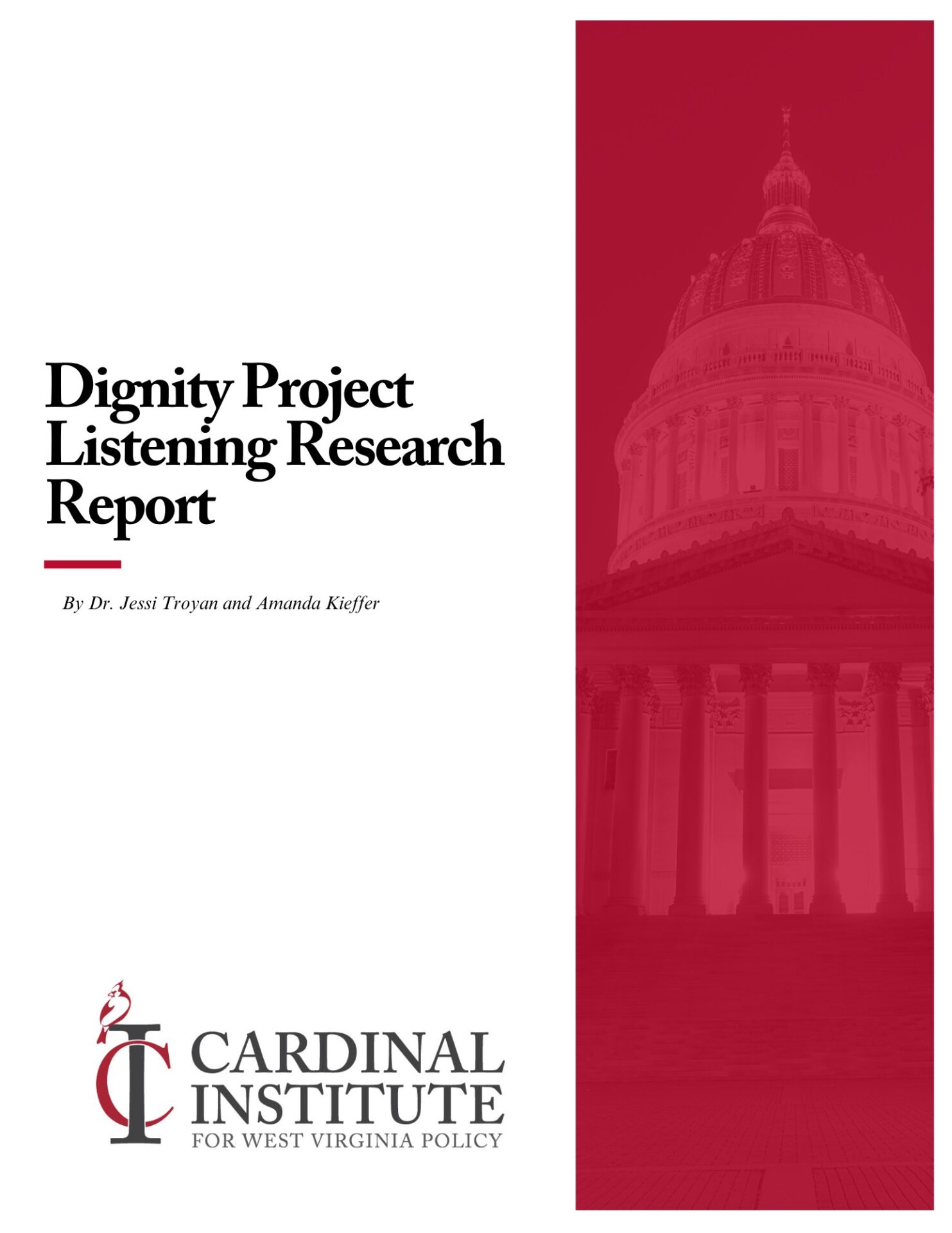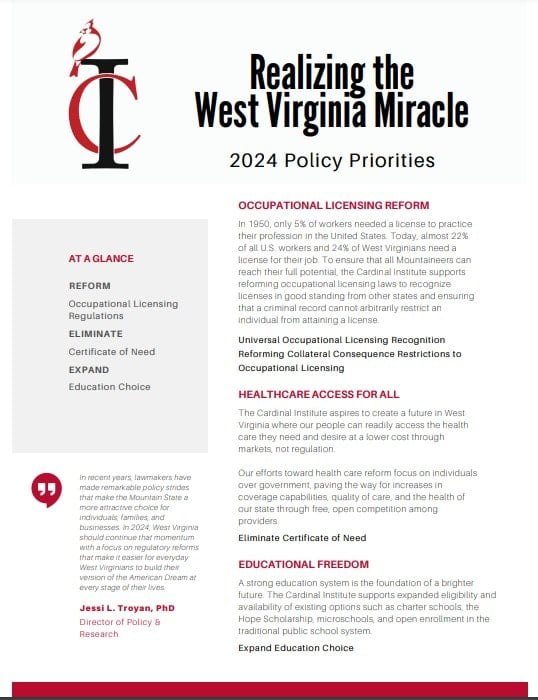West Virginia Needs More Addiction Treatment Services
The principle of supply and demand has been with us since Adam Smith. This principle is at the core of West Virginia’s decades long drug problem. The supply of drugs has skyrocketed all while government mandates have ignored demand for recovery services.
Cartels and pharmaceutical companies have reacted to increased demand by increasing the supply of dangerous drugs from OxyContin to fentanyl. Instead of increasing the amount of treatment services and providers available, the state has thought it best to handcuff them instead.
Government Prevents Drug Addiction Treatment
The best example comes from the wild and wonderful world of West Virginia healthcare regulations. Certificate of Need (CON) laws have been a burden on our healthcare system for nearly 50 years. CONs require hospitals and health care providers to prove that a service is “needed” before they can invest in such a service. Study after study has shown that these laws are costly and reduce quality of care.
One would hope that it would be easy to prove that drug treatment is needed given West Virginia’s sustained rates of abuse and overdoses. Unfortunately, instead of making it easy to establish treatment centers for our fellow Mountaineers who want to save their lives, the state has done the exact opposite.
The Institute for Justice recently pointed out that there is a moratorium on building new opioid treatment centers. Let me repeat that to make sure I’ve made myself clear. In West Virginia, the state hit hardest by the opioid crisis, there is a BAN on new treatment for said drug crisis. That’s as deadly as banning coats in a Minnesotan winter.
This bad, no good, very dangerous policy also ignores a critical reality for handing the addiction crisis. Most people are not addicted to one substance, they are addicted to several. These are called “poly-substance abusers.” One study noted that most people with an opiate addiction are also addicted to other substances.
There is not a perfect distinction between the population of meth abusers and the population of heroin users, but our outdated government policy pretends that treating the two are totally different.
Recovering Drug Addicts Fight to Help Others
If shutting down supply of treatment centers wasn’t bad enough, West Virginia has also made it difficult for existing treatment centers to find staff. Due to legal barriers, it is often difficult for recovered addicts to get a job helping people in active addiction.
The largest barrier to recovered addicts helping current addicts is the “variance” system. Variance allows people with past criminal convictions to get jobs they normally couldn’t get. If the background check flags someone, this system directs them to fill out another form to demonstrate how they have reformed.
While it sounds good on paper, the devil is always in the details. A background check takes about 30 days to complete. A variance takes another 30 days, pushing us to 60 days of delays. Let’s say you are open and honest about your record and request a variance right away from your employer. Tough luck. The background check must be processed first.
Potential employees must complete the variance for every new job in recovery services, not just the first one. Let’s say Bob gets a job at a rehab facility in Charleston and then moves to Charles Town. He would need to go through another 60 day round of paperwork to start his new job. It doesn’t matter if he had passed his initial variance, kept his record clean, and had glowing employer reviews.
It’s Time to Reduce Barriers to Addiction Treatment
This hurts everyone in our addiction battle. It takes a critical supply of workers away from our recovery centers. Variance also prevents reformed addicts from working, and joblessness is highly correlated with relapse in recovered addicts.
While we need some kind of variance system, multiple rounds only reduce care and hope in West Virginia. Instead of fanning the flames of the opioid crisis, the state should allow the supply of recovery services to meet the demand.
Bradley Foster is the Community Engagement Associate for the Cardinal Institute for West Virginia Policy.









